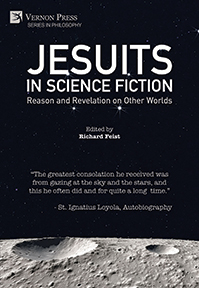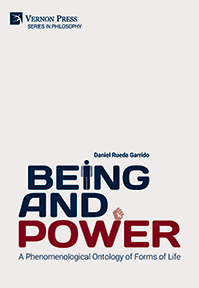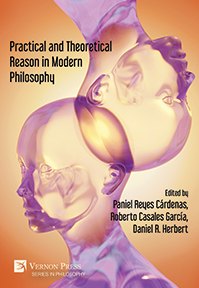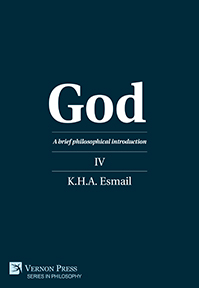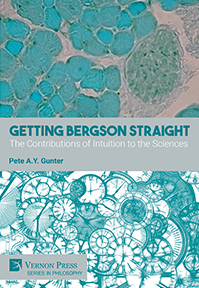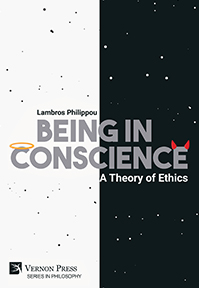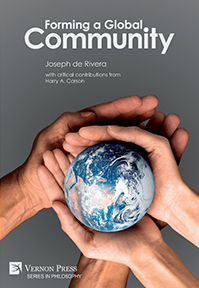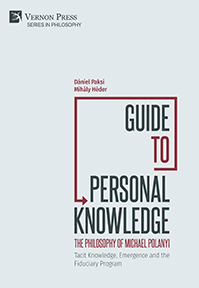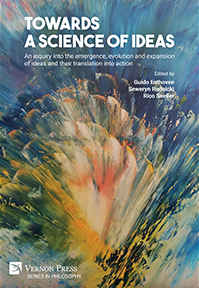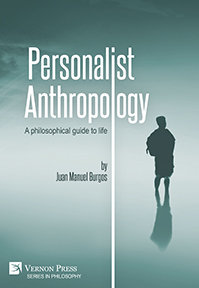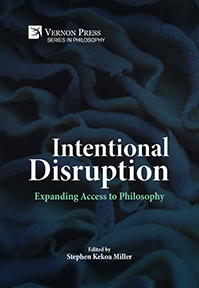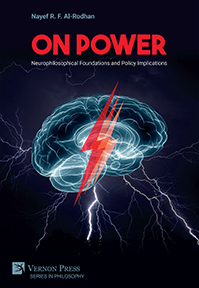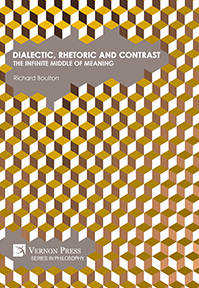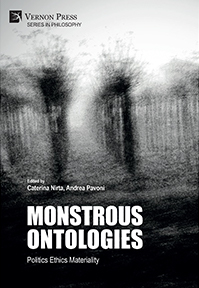Search
Browse
by Publication status
by Subject
Anthropology (26) Art (126) Business and Finance (27) Cognitive Science and Psychology (56) Communication and Journalism (49) Economics (63) Education (70) History (150) Human Geography (22) Interdisciplinary (43) Language and Linguistics (134) Law (16) Music Studies (19) Philosophy (161) Political Science and International Relations (104) Sociology (317) Statistics and Quantitative Methods (21)by Series
Series in Literary Studies (68) Series in Philosophy (59) Series in Education (54) Series in Sociology (45) Bridging Languages and Scholarship (33) Series in Politics (32) Series in World History (32) Series in Language and Linguistics (25) Cognitive Science and Psychology (21) Series in Philosophy of Religion (21) Series in American History (20) Series in Art (19) Critical Perspectives on Social Science (18) Series in Cinema and Culture (16) Series in Critical Media Studies (16) Curating and Interpreting Culture (15) Series on the History of Art (14) Economics (14) Series in Anthropology (13) Series in Business and Finance (13) Series in Music (12) Series in Communication (9) Series in Performing Arts (9) Philosophy of Personalism (8) Series in Law (8) Series on Climate Change and Society (8) Series in Economic Methodology (7) Women's Studies (7) Classics in Economics (6) Series in Economic Development (6) Philosophy of Forgiveness (5) Series in Built Environment (5) Series in Economic History (5) Series in Philosophy of Science (5) Series in Social Equality and Justice (5) Series on the History of Science (4) Serie En Estudios Literarios (3) Serie en Sociología (3) Series in Contemporary History (3) Series in Creative Writing Studies (3) Series in Design (3) The Interdisciplinary Built Environment (3) Serie en Comunicación y Medios (2) Serie en Historia (2) Serie en Música (2) Series in Heritage Studies (2) Series in Innovation Studies (2) Series in Philosophy of Race (2) Serie en Ciencias Políticas (1) Serie en Entorno Construido (1) Serie en Estudios Culturales (1) Serie en Filosofía (1) Serie en Filosofía de la Ciencia (1) Serie sobre Cambio Climático y Sociedad (1) Series in Classical Studies (1) Series in Economics of Technological Change (1) Series in Urban Studies (1)by Language
English Spanishby Author
Browsing with filters
Jesuits in Science Fiction: Reason and Revelation on Other Worlds
Edited by
Richard Feist, Saint Paul University
Availability: In stock
318pp. ¦ $111 £88 €103
From their founding in 1540 to this day, Jesuits have been controversial. Their centuries of missionary work have taken them to all corners of the world. They have been accused of killing Kings and Presidents and contributing to colonization and destruction of cultures—even participating in enslavement. But the Jesuits have also been seen as bringers of light and education. With their ferocity of purpose and intellectual rigor, the Jesuits’ impact on world history cannot be ignored. No surprise then, that Jesuits appear in literature, especially that literature of ideas, exploration, and social commentary, otherwise known as science fiction. This unique collection of essays explores how the Jesuit has long been part of science fiction’s history and how Jesuit ideas and characters are featured in some of science fiction’s greatest works. In this collection, we see Jesuits continue their missionary spirit as they take leave of the earth, moving their missionary labors literally towards the heavens. Reason and revelation are now indeed on other worlds. In this collection, we have explorations of philosophy, science, theology, and culture, all done in typical Jesuit fashion, always in various and foreign contexts. This collection is akin to others in its linking of religion and science fiction, but it is unique in its concentration on the Jesuits and science fiction. This collection will be of interest to scholars working and researching in the field of science fiction studies and would be suitable for courses on science fiction. But it will also be of interest and accessible to those of us who simply love science fiction for its power to explore other worlds and, in this case, to take some of the deepest human reflections, namely those on God, morals and culture, lift them up, and see what forms they may take on other worlds.
Philosophy’s Gambit: Play and Being Played
Edited by
Jeremy Sampson, University of Aberdeen, Aberdeen, Scotland, UK
Availability: In stock
280pp. ¦ $117 £90 €107
Living in an era of immense and bewildering change in technology, pandemic and war, humanity has had cause to challenge the apparent old fixities and certainties of life. Essentially, are we being played? The premise of this volume is that all of human life is underpinned by powerful dynamic systems, so tightly interwoven into our daily lives that we are barely aware of them, whose true nature only comes to light at times of profound disruption or crisis. These powerful dynamic systems, philosophical or otherwise, often fall under the umbrella of ludic theory. Within these pages, some of the leading thinkers of ludic theory from three continents explore its diversity and relevance through the perspectives of some of the world’s most famous philosophers. In many ways, this volume follows on from Sampson’s 'Being Played: Gadamer and Philosophy’s Hidden Dynamic' (2019). It also draws upon other ludic-centred and ludic-inspired texts that include Mattice’s 'Metaphor and Metaphilosophy' (2014) and Arthos’ 'Gadamer’s Poetics: A Critique of Modern Aesthetics' (2014), together with Frazier’s 'Reality, Religion and Passion' (2009) and Homan’s 'A Hermeneutics of Poetic Education' (2020). Although this is not the first volume offering an integrated approach to ludic theory, see Ryall (ed), 'The Philosophy of Play' (2013), it offers a diverse and detailed approach to the subject, including not only Western philosophers, but also thinkers from Ancient China, 16th-century India and modern South America. This volume will be not only of interest to scholars and students of ludic theory and philosophy in general, but because of its deliberate globalised content, it is hoped it might have a wider appeal globally as humanity continues to grapple with significant challenges created by these current winds of change.
Being and Power. A Phenomenological Ontology of Forms of Life
January 2024 / ISBN: 978-1-64889-817-4Availability: In stock
146pp. ¦ $55 £44 €51
Why do we act as we do? Why do we assume that the way of being and behaving in our community is right, good, and common sense? Why do we fail to understand those who are, act, and feel differently? These are some of the questions that this book raises and attempts to answer. This ontology is rooted in the phenomenological tradition but with the innovation of taking the "form of life" as the central ontological unit. We are our form of life, but, as a transcendental-immanent reality, this is not directly equivalent to culture or society; it is rather the "political" realisation in the world of an image of the human being shared by a given community. This overcomes the traditional dualities of individual and society, consciousness and body, facticity and freedom, actuality and possibility. The subject is a subject because it identifies with that image, which is equivalent to the intersubjective consciousness of how one should act and be in the world. This gives rise to multiple forms of life. The latter implies a certain power to be who one wants to be. In this way, the book is an invitation to self-examination, for if our form of life is voluntary (i.e., capitalism), it shatters the illusion that one cannot live in any other way, and places us before the anguished but inevitable task of justifying its adoption or resorting to its abandonment. The book offers a dynamic analysis of human existence as the actualisation of a form of life that is, at the same time, the exercise of a certain power over those who seek to live otherwise, especially when that form is institutionalised by a government as the essence of the national or transnational community.
Practical and Theoretical Reason in Modern Philosophy
Edited by
Paniel Reyes Cárdenas, Oblate School of Theology; The University of Sheffield et al.
Availability: In stock
210pp. ¦ $103 £82 €96
The present collection aims to examine this fertile period in the history of philosophy concerning its significance for understanding the relation between theoretical and practical reason, or, relatedly, facts and values. Our contributors have explored different important ways in which both the shortcomings and insights of the theoretical/practical distinction have shaped Western philosophy.
God: A brief philosophical introduction IV
K.H.A. Esmail, University of Cambridge
Availability: In stock
521pp. ¦ $86 £70 €79
This is a clear and concise and original investigation of God’s nature and existence. First of all, it considers (among other things) two of God’s traditional properties: being all-knowing and being all-powerful. It argues he cannot possess these properties. But, it argues this is in accord with him being worthy of worship. Secondly, it introduces the notion of evil being “overridden”. It argues he has to bring about other free living things and it is plausible they have to be liable to experience evil due to their conditions. But, it argues the evil in this world is “overridden”. Thirdly, it considers the principal arguments for the claim he does not exist. (They refer to the evil in the world.) It argues they do not establish sufficient grounds for this claim. Finally, it considers some well-known arguments for the claim he exists. It argues they face difficulties. It sets out other arguments: eg, some arguments to increase any degree of belief one has that God can exist. It includes a number of Appendices: God’s sovereignty; Are there sufficient grounds for the claim that, very probably, God does not exist?; Theodicy and some theodicies; Some further remarks on God and time; Some further remarks on a living thing which possesses the power to do this or that freely; Some remarks on God being simple; Some remarks on God being present in a spatial realm and God being present in a non-spatial realm; ... . It covers as a whole the principal parts of the Philosophy of Religion. It unifies these parts to a significant degree. It proceeds regularly by way of formal and clear arguments. It will be of interest to advanced students and specialists in Philosophy, Religious Studies, and Theology. Given its explanation of key terms, its jargon-free language, its clarity and brevity.... , it will be of interest to others, too.
Modal Translation: The Relevance of Worlds
Paul Hanmer, Nottingham University
Availability: In stock
174pp. ¦ $54 £44 €49
This book concerns the philosophical analysis of modal sentences. David Lewis’ Modal Translation Scheme "translates" sentences of quantified modal logic into sentences of predicate logic supplemented by counterpart theory. A number of theoretical advantages are thereby secured. One component of the translation scheme makes reference to non-actual but possible worlds i.e. the primitive predicate “at a world(s), w”. The author addresses the problem of advanced modal sentences which threaten this predicate and so the ability of genuine realism to secure the aforementioned theoretical benefits. The problem of advanced modal sentences is a relatively new field of philosophical research. This ground-breaking book will primarily be of interest to researchers in modality, particularly those working in this field.
Getting Bergson Straight: The Contributions of Intuition to the Sciences
Pete A. Y. Gunter, University of North Texas
Availability: In stock
182pp. ¦ $53 £42 €49
This study concerns the ideas of one particular philosopher, Henri Bergson, whose views of time, intuition, and creativity have had a significant impact on art, literature, and the humanities, both in his time and in our own. Although it is generally recognized that Bergson’s ideas have significantly impacted the arts and the humanities, it has not been recognized how they have also had a creative influence on the sciences as well. Nor has it been realized that this was one of his most basic contentions. Bergson’s conception of intuition—his fundamental insight into reality—was not limited to fugitive insights into human existence. By realizing previously unsuspected possibilities for research and discovery, his endeavors were also meant to make possible new advances in the sciences. If it enabled his cousin by marriage, Marcel Proust, to explore human memory in depth, it also inspired psychologists like Daniel Schachter to use Bergson’s ideas to make real contributions to contemporary memory science. If his notion of creative evolution brought many thinkers to a belief in human creative freedom, it brought others (notably Alexis Carrel and Pierre Lecomte de Noüy) to a scientific study of biological time. Among his successful speculations was the theory of the Big Bang cosmology. 'Getting Bergson Straight' shows many points at which Bergson’s ideas anticipated future developments in the sciences. This was seen clearly by the Nobel Prize-winning physicist Luis de Broglie who viewed Bergson’s physics as presaging quantum physics. Thus, the text is well situated for arts, humanities, social science, and natural science classrooms studying creative thinking and/or intellectual history.
Being in Conscience: A Theory of Ethics
December 2022 / ISBN: 978-1-64889-533-3Availability: In stock
218pp. ¦ $74 £58 €69
This book aims to suggest a worldview departing from an articulation of a theory of conscience. It analyses the constitutive parts of conscience, a concept that has not been thoroughly examined and analysed in the discussions on ethics. Having the mechanisms of production of conscience as a point of reference, the book proceeds to discuss the concepts of subjective and collective evil. The concept of being in enhanced conscience aims to position the subjective conscience in human historicity. Based on the analysis of the roots of conscience, the subject is placed in the public sphere from the point of view of its corporeal harmony and disharmony as the conditions for its binding with the institutions and the spirit of a worldsphere. The book then expands its scope by addressing the question of what makes a worldsphere functional and dysfunctional. This analysis is useful for scholars who are interested in the deep structural conditions that produce and sustain a liberal democratic state. Through the analysis of inner-worldly and inter-worldly temporality, the mode of the creative rhythm is depicted by underlining the creative divergence that occurs not only within distinct worlds but also between worldspheres. The mediation of this analysis introduces the concept of planetary functionality whereby what is at stake is the islands of functionality that serve the survival of an interconnected world. The theory of conscience is applied also to the analysis of the state and of the economy. Conscience is also identified with the properties attributed to God, suggesting a new understanding of the meaning of religion and its role in human historicity. Finally, it argues that we should understand the future as the future of conscience that can function as the only motor of historical evolution.
The Essentials of Husserl: Studies in Transcendental Phenomenology
V. C. Thomas, Centre for Phenomenological Sciences, India; Pondicherry University, India
Availability: In stock
224pp. ¦ $61 £45 €52
Known as the founder of the phenomenological movement, this book examines Husserl’s various phases of phenomenology during his realist, transcendental, static, genetic, and post-Crisis (of European Sciences) periods. Consisting of ten carefully researched and thoroughly examined essays, this book describes Husserl’s concepts and ideas through numerous examples and diagrammatic representations, in a bid to elucidate the nuances of phenomenology for its readers. Valuable insights into Husserl’s realist phase are made in the chapter on Meaning, and the chapters on Natural Attitude, Epoché and Phenomenological Reduction, while the chapter on Noesis & Noema symbolizes the transcendental phase. Thomas points out Husserl’s transition from static to genetic phenomenology in the chapter on Lived Body, with the chapters on Lifeworld, and the Notion of the Other, later focusing on this perspective. Husserl’s entire phenomenological space, including his pre-phenomenological period, are covered in the chapter on Lived Time. However, the chapters on Phenomenology: The Study of Self and Beyond, and Consciousness and Intentionality are the fulcrums upon which the edifice of phenomenology turns. The final chapter on Presuppositionlessness in phenomenology expresses Thomas’ personal enquiries into Husserl’s contention that phenomenology is a presuppositionless science. This book will be of particular interest to research scholars and post-graduate students in the areas of Philosophy and Social Sciences, as well as those interested in contemporary Western Philosophy, and the history and development of Ideas.
Vasile Băncilă. An ethnic-spiritualist metaphysics banned by the totalitarian regime
Ion Dur, Technical University of Cluj-Napoca, Romania; Baia Mare Northern University Centre, Romania
Availability: In stock
290pp. ¦ $76 £60 €71
This book is a rediscovery and examination of the thinking of Vasile Băncilă, a philosopher forbidden by the totalitarian regime of Nicolae Ceaușescu. The philosopher Lucian Blaga saw Băncilă as a threat to the spirit of the highest Romanian culture. It is estimated that Băncilă’s work extends to 32 volumes, 17 of which have been published so far. With such a significant opus, Vasile Băncilă is, indisputably, a key figure in contemporary Romanian culture, particularly in the sphere of philosophy. The book has eleven chapters and is divided into two parts. The first part deals with the hermeneutics of the author’s youthful works. His reflections on the purpose of philosophy for life are important, about the role of this discipline in the education of adolescents and students, the relationship between irony and education, his thoughts of one of the greatest Romanian poets, Mihai Eminescu, and the philosophy of Descartes and of Schopenhauer. In the second part, the book looks at Băncilă’s aim of structuring a possible system of philosophy; more precisely, an ethnic-spiritualist metaphysics which, when it was elaborated, contradicted the official ideology of the totalitarian regime. Finally, the book covers the philosopher’s work, analysing step-by-step the relation between the part and the whole (pars pro toto), as well as between existence and metaphysics, and the philosopher’s conclusions about Romanian existence.
Forming a Global Community
Joseph de Rivera, Clark University
Availability: In stock
256pp. ¦ $55 £43 €51
To address global problems such as pandemics, warming, economic inequality, mass migration, and widespread terrorism, Joseph de Rivera argues that we must form a global community. A community of eight billion humans is difficult to conceive. However, it can be imagined and created if we transform our understanding of who humans are and what ‘community’ entails. We can understand who persons are, how they are motivated, and how a community can be conceived in a way that offers an alternative to individualism and collectivism. The “mutualism” that is proposed provides a moral compass for navigating the challenges that confront us and encourages specific governing structures, political economies, and rituals that will further the formation of a global community. Based on the philosophical analysis of John Macmurray, the author’s argument relies on an extensive review of the current literature on self, personhood, emotional motivation, social identity, forms of community, and religious and secular rituals. Interdisciplinary in nature, it aims to direct philosophy and the social sciences to the challenges of globalism and the creation of a global community.
Guide to Personal Knowledge: The Philosophy of Michael Polanyi
Tacit Knowledge, Emergence and the Fiduciary Program
Dániel Paksi, Budapest University of Technology and Economics (BUTE), Hungary
and Mihály Héder, Budapest University of Technology and Economics (BUTE), Hungary
Availability: In stock
233pp. ¦ $65 £47 €54
This book will help readers understand the most important book of Michael Polanyi, ‘Personal Knowledge’, and help them grasp the essence of his philosophical thinking. In this volume, Polanyi’s goals are first reconstructed, and then his main philosophical arguments are introduced. The discussion is limited to the most crucial ideas that are indispensable for the arc of his book: tacit knowledge, emergence and the fiduciary program. The thirteen chapters of this volume explain the essence of the thirteen chapters of ‘Personal Knowledge’. The page numbers in this book work just as well with the 2015 ‘Enlarged Edition‘ of ‘Personal Knowledge‘ as with the original issues. Whether you just want to get the key quotation and the context right on tacit knowledge, emergence or the fiduciary program, or want to have a deep dive for your scholarly research in philosophy and management, this book is for you.
Towards a science of ideas: An inquiry into the emergence, evolution and expansion of ideas and their translation into action
Edited by
Guido Enthoven, Institute for Social Innovation, Netherlands et al.
Availability: In stock
328pp. ¦ $86 £66 €74
Ideas are the basic building blocks that construct the world we live in. Yet despite the abundance of literature on creativity and innovation, there has been little reflection on ideas as such, their nature and their working mechanisms. This book provides foundations for a reflection focused specifically on ideas - what they are, how they emerge, develop, interact, gain acceptance and become translated into actions. In doing so the book moves beyond the mainstream approaches, offering new, promising theoretical angles, presenting original findings and initiating a research agenda for a science of ideas. This book provides a fresh perspective on how to conceptualize and study ideas and their working mechanisms by treating ideas as the main object of the study and by bringing together a group of original thinkers, scholars, and philosophers to move beyond the mainstream academic discourse on creativity and innovation.
Personalist Anthropology: A philosophical guide to life
Juan Manuel Burgos, Universidad Villanueva, Spain
Availability: In stock
311pp. ¦ $64 £47 €53
Philosophical personalism has generated a very powerful field of study in the twentieth and twenty first centuries but has not produced a systematic exposition. This book fills this big gap by offering for the first time a full systematic personalistic vision of the human person. This ambitious volume offers a pedagogical and integrated exposition of philosophical personalism, answering vital questions about human identity and existence in a way that the reader (or student) can achieve an integrated view of the person. The book points to the real life of each person so that, by partially unraveling the mystery of the personal being, it becomes a philosophical guide for life. For these reasons, the book can be used both for academic purposes, as a manual of philosophy of man or for personal enlightenment. Divided in five parts, the first part of the book works as an introduction, offering an overview of the human person and of the notion of person. The second part describes the internal structure of the human being addressing topics as corporeity as a personal fact; sensibility and the senses; affectivity; intelligence; freedom understood as choice and self-determination and, finally, the personal self. The third part analyses the person in action and some special types of action such as work and language. The fourth part deals with interpersonal relationships beginning with I-You relationship (friendship, love) and following with the family and the social structure. Finally, part five deals with the so-called ultimate questions, that is, those that decide the final meaning of each person’s life, namely, time, death, immortality, and religion.
The Human Soul: Essays in Honor of Nalin Ranasinghe
Edited by
Predrag Cicovacki, College of the Holy Cross
Availability: In stock
304pp. ¦ $86 £67 €74
This collection of essays is dedicated to a recently deceased philosopher and humanist, Nalin Ranasinghe. His central philosophical and humanistic preoccupation was with the human soul. Not surprisingly, his greatest inspiration was Socrates’ credo “Care for your soul,” and the title of his first book was 'The Soul of Socrates'. In this and his later writings, Ranasinghe expressed his growing concern over the idea that the human soul has been hijacked due to the way our civilization has developed: the highest and noblest aspirations of our civilization have been replaced by our obsession with money, pleasure, and power. We now live in a time where we do not know who we are, nor who the people around us are. Despite all of the technical gadgets connecting us virtually, this is the age of disconnect and loneliness, as well as of the degradations of humanity. Ranasinghe insisted that the two keys for recovery are the self-knowledge of the soul and a continuous dialogue with others. We need to relearn how to relate to ourselves and others as unique individuals, not as objects for the satisfaction of our needs. Following his ideas, the twenty essays presented here are divided into two parts: “the soul in reflection” and “the soul in dialogue.” The contributors come from various countries around the globe and work in different disciplines, and their chapters aim to revive our interest in the soul and the obscured core of our humanity. This book will appeal to undergraduate and graduate students of philosophy; however, the essays are written in a non-technical language, also making them accessible to the general audience.
God: A brief philosophical introduction III
K.H.A. Esmail, University of Cambridge
Availability: In stock
449pp. ¦ $73 £53 €60
This is a clear and original investigation of God’s nature and existence. First of all, it considers (among other things) two of God’s traditional properties: being all-knowing and being all-powerful. It argues he cannot possess these properties. But, it argues this is in accord with him being worthy of worship. Secondly, it introduces the notion of evil being “overridden”. It argues he has to bring about other free living things and it is plausible they have to be liable to experience evil due to their conditions. But, it argues the evil in this world is “overridden”. Thirdly, it considers the principal arguments for the claim he does not exist. (They refer to the evil in the world.) It argues they do not establish sufficient grounds for this claim. Finally, it considers some well-known arguments for the claim he exists. It argues they face difficulties. It sets out other arguments: eg, some arguments to increase any degree of belief one has that God can exist. It includes a number of Appendices: God’s sovereignty; Are there sufficient grounds for the claim that, very probably, God does not exist?; Theodicy and some theodicies; Some further remarks on God and time; Some further remarks on a living thing which possesses the power to do this or that freely; ... It covers as a whole the principal parts of the Philosophy of Religion. It unifies these parts to a significant degree. It proceeds regularly by way of formal and clear arguments. It will be of interest to advanced students and specialists in Philosophy, Religious Studies, and Theology. Given its explanation of key terms, its jargon-free language, its clarity and brevity.... , it will be of interest to others, too.
Intentional Disruption: Expanding Access to Philosophy
Edited by
Stephen Kekoa Miller, Oakwood Friends School; Marist College
Availability: In stock
183pp. ¦ $64 £51 €56
'Intentional Disruption: Expanding Access to Philosophy' is intended for those interested in pre-college philosophy; the nine contributions within cover a wide array of approaches to bringing philosophy to younger students in a number of new settings. The chapters in this book describe programs taking place across the United States—some inside school and some in unexpected settings such as camps, art museums and nature trails—and offer help to those who want to establish or enrich philosophy programs at pre-college levels while discussing an underlying philosophy and the challenges the programs have faced. At a time when institutional philosophy is imperiled, the programs in this volume point towards new directions being forged to bring the benefits of doing philosophy to more people. This volume will be of particular interest to those interested in pre-college philosophy, and it is intended for philosophy professors, graduate students in philosophy or education, and philosophy teachers in pre-college settings. 'Intentional Disruption: Expanding Access to Philosophy' will also be helpful to school administrators, parents and philosophy camps instructors.
On Power: Neurophilosophical Foundations and Policy Implications
September 2021 / ISBN: 978-1-64889-145-8Availability: In stock
354pp. ¦ $71 £52 €59
‘On Power: Neurophilosophical Foundations and Policy Implications’ seeks to provide a historical, contemporary and predictive analysis of power. It aims to explain the history of political power in a unique way by approaching the concept of power through the lens of neurophilosophy – the application of neuroscientific principles to practical questions of governance, ethics, political and moral philosophy. In this book, Professor Nayef Al-Rodhan provides an accessible, incisive, and provocative take on the history, nature, and future of power. His insights go beyond conventional wisdom by exploring some of the themes that will become increasingly relevant to analysing power in the decades to come. A central idea of the book is the highly addictive universal nature of power at the neurochemical level, the craving for it, and the intense resistance to giving it up in all walks of life and circumstances. This can be applied directly to thinking about governance, political change, public policy, national and international peace, security, and prosperity. Al-Rodhan formulates an innovative conceptual picture of power by integrating the findings of neuroscience with the broader implications of power in the era of digital connectivity and cognitive and physical enhancement technologies. In doing so, he guides our approach to political power and public policy, influenced by ubiquitous, disruptive, and intrusive technologies. This book will appeal to students and scholars of neuroscience, philosophy, government, business, and international relations. It will also hold particular interest for politicians, public servants, think-tankers, policy-makers, and journalists, as well as senior executives from the corporate, sports, media and entertainment world.
Dialectic, Rhetoric and Contrast: The Infinite Middle of Meaning
Richard Boulton, St George’s, University of London; Kingston University
Availability: In stock
148pp. ¦ $44 £33 €37
By compiling an experimental method combining both dialectic and rhetoric, ‘Dialectic, Rhetoric and Contrast: The Infinite Middle of Meaning’ demonstrates how singular meanings can be rendered in a spectrum of 12 repeating concepts that are in a continuum, gradated and symmetrical. The ability to arrange meaning into this pattern opens enquiry into its ontology, and presents meaning as closer to the sensation of colours or musical notes than the bivalent oppositions depicted in classical logic. However, the experiment does not assert that this pattern suggests some sort of constant or absolute principle; instead, it theorises on the ways in which meaning can be considered to be recursive. To explain this, the book explores the concept of contrast itself. No exactitude on the precise existence of contrast can ever be struck because the answer varies infinitely depending upon the scale of measurement used to gauge the meeting point. This characteristic of contrast helps to define a whole new dimension from which sensation, meaning, cognition and consciousness can be analogised to the infinite forms between forms. At a time when the widest consensus in philosophy is the exhaustion of its central themes, the significance of such a hypothesis provides fresh impetus to revise some of the key meanings and concepts underpinning contemporary thought. To do this, the method explores the opposing themes of idealism and realism that run throughout western philosophy from Plato to the Speculative turn. This book will be of interest to professional academic audiences in the humanities and social sciences, from graduates to senior scholars. It will also be an interesting read to anyone wishing to keep abreast of developments in continental philosophy, epistemology, metaphysics, and the sociology of knowledge.
Monstrous Ontologies: Politics Ethics Materiality
Edited by
Caterina Nirta, University of Roehampton, London
and Andrea Pavoni, University Institute Lisbon, Portugal
Availability: In stock
255pp. ¦ $62 £47 €53
While the presence of monsters in popular culture is ever-increasing, their use as an explicit or implicit category to frame, stigmatise, and demonise the other is seemingly on the rise. At the same time, academic interest for monsters is ever-growing. Usually, monstrosity is understood as a category that emerges to signal a transgression to a given order; this approach has led to the demystification of the insidious characterisations of the (racial, sexual, physical) other as monstrous. While this effort has been necessary, its collateral effects have reduced the monstrous to a mere (socio-cultural) construction of the other: a dialectical framing that de facto deprives monstrosity from any reality. 'Monstrous Ontologies: Politics, Ethics, Materiality' proffers the necessity of challenging these monstrous otherings and their perverse socio-political effects, whilst also asserting that the monstrous is not simply an epistemological construct, but that it has an ontological reality. There is a profound difference between monsters and monstrosity. While the former is an often sterile political and social simplification, the end-product of rhetorical and biopolitical apparatuses; the latter may be understood as a dimension that nurtures the un-definable, that is, that shows the limits of these apparatuses by embodying their material excess: not a 'cultural frame', but the limit to the very mechanism of 'framing'. The monstrous expresses the combining, hybridising, becoming, and creative potential of socio-natural life, albeit colouring this powerful vitalism with the dark hue of a fearful, disgusting, and ultimately indigestible reality that cannot simply be embraced with multicultural naivety. As such, it forces us towards radically changing not the categories, but the very mechanisms of categorisation through which reality is framed and acted upon. Here lies the profound ethical dimension that monstrosity forces us to acknowledge; here lies its profoundly political potential, one that cannot be unfolded by merely deconstructing monstrosity, and rather requires to engage with its uncomfortable, appalling, and revealing materiality. This book will appeal to postgraduate students, PostDocs, and academics alike in the fields of philosophy, critical theory, humanities, sociology and social theory, criminology, human geography, and critical legal theory.

